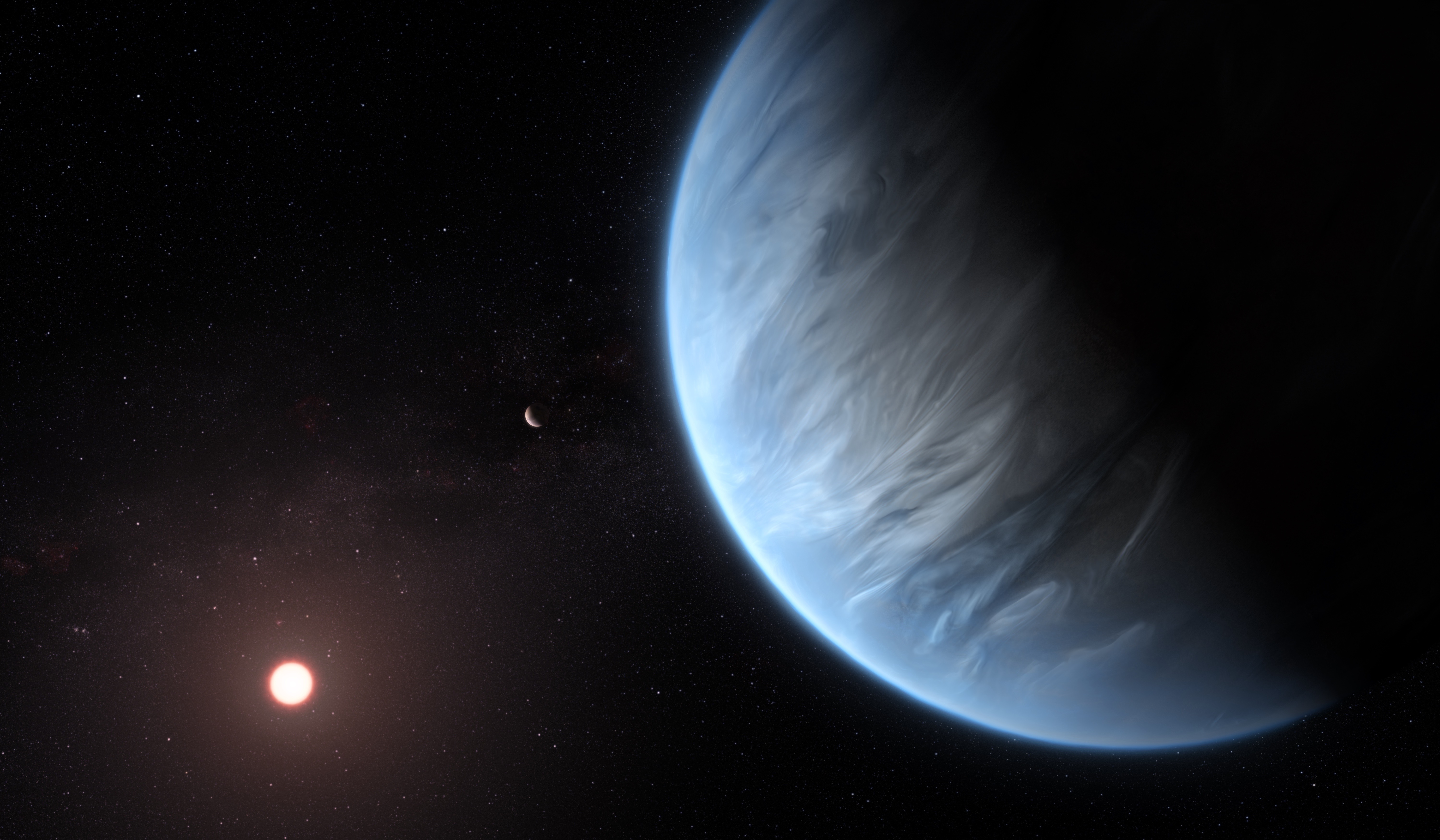The saga surrounding Neptune-size “super-Earth” exoplanet K2-18 b just got a whole lot more interesting. For a quick recap, this is the world a team of scientists recently suggested could host life — to the dismay of other scientists in the community, who felt the announcement failed to include necessary caution.
While signs of life on the world have failed to conclusively present themselves to the James Webb Space Telescope (JWST), the powerful space telescope has discovered that this planet is so rich in liquid water that it could be an ocean, or “Hycean” world.
“This has certainly increased the chances of habitability on K2-18 b” Nikku Madhusudhan, the University of Cambridge scientist behind the original K2-18b discovery as well as the new study, told Space.com. “This is a very important development and further increases the chance of a Hycean environment in K2-18 b. It confirms K2-18 b to be our best chance to study a potential habitable environment beyond the solar system at the present time.”


